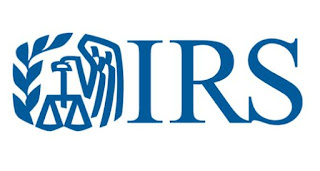By Ben Kinsey
 |
| Image courtesy wikimedia |
Business owners are used to dealing with stress. That’s because stress is part of the
job. Whether it’s dealing with difficult
clients, balky vendors or recalcitrant staff members, business owners are part
tycoon and part firefighter. But when it
comes to putting the fear of God into most business owners, nothing comes close
causing them to panic than to receiving a letter informing them that their
business is about to be audited by the IRS.
To help keep you from going off the deep end should your business ever
wind up being audited, I have put together a list of steps to help you survive
this calamity.
1. The IRS will NOT send you an email or
phone you to threaten an audit. – But
scam artists might. If you get a call, a
text or an email purporting to come from the IRS, don’t you believe it. The only way the IRS sends a notification of
an audit is via the US Postal Service.
2. Do NOT panic. - When
most people receive a notification via mail of an impending audit, they act
like fleeing felons caught in a spotlight by assuming they must be. While it is true that an IRS agent may have
spotted something amiss on a business tax return, it is equally likely that the
business was chosen at random in a computerized screening of businesses.
 |
| Image courtesy flickr |
4. How should you prepare for an audit? When it comes to
surviving an audit, it mostly comes down to being able to document and defend
your paper trail. This means you need to
get your books in order, as well as organizing all your receipts. If you
write off your home office, be prepared to show that you use the space
exclusively for business. Most questions
asked by an auditor come down to verifying the financial documents you used to
prepare your tax return.
5. Do I need to have my CPA attend the
audit? While
you aren’t required to have your accountant present during the audit, it’s an
option that I highly recommend. Since it’s
your CPA who prepared and best understands your tax returns, he or she is best
able to defend every line item and tax deduction documented. Your CPA also best knows the ways of auditors
and is unlikely to blurt out anything that could cause the IRS to levy additional
fines or penalties on a client.
 |
| Image courtesy of Blue Diamond Gallery |
6. May I appeal an IRS ruling? – Absolutely. If you and your tax adviser disagree with the
IRS determination, you have the right to take your case to tax court. Provided the amount you owe is less than
$25,000, there is a simple appeal process that gives you the right to
demonstrate how your return satisfied the letter of the law. No other criteria for reversing the IRS
determination will be taken into consideration and you will be required to pay a
tax attorney to represent you in tax court.
7. How can I avoid being audited? –
As Benjamin Franklin once said, “An ounce of prevention is worth a pound of cure.” The best way to stay off the IRS radar is to
make sure you use sound business practices, take reasonable and well-documented
deductions, and use a reputable CPA to process and submit your tax returns in a
timely manner.
8. What do I do if I can’t find all my
receipts? – While a solid paper trail is the best
evidence you can present to an auditor, if you are unable to put your hands on
some receipts, or if they have either faded, gotten lost or been destroyed, the
next best thing is to provide a logbook or diary that documents where and when
you made the transaction. The Cohan Rule
also works in your favor since it states that the IRS must allow a portion of
your deductions even without proof. However,
it doesn’t require them to honor the full expense, which means the auditor may
only credit you with the least amount you could have spent instead of the
actual amount.
9. What if someone stole the receipts? –
If
a burglar were to sneak into your office and make off with all your receipts
for the past few years, that doesn’t necessarily get you off the hook when it
comes to documenting your deductions.
Neither does flood or fire. That’s
why it’s important that you store your receipts somewhere safe. Failing that, you should present the auditor
with a police report and/or insurance documents that demonstrates the damage
that caused you to be unable to produce the receipts. My dog ate them isn’t going to cut it.
10. Talk to Your CPA – Regardless
of the nature of the audit, your first step should you receive an audit notice
is to immediately consult your accountant.
Not only will he or she be able to give you an idea of what was likely
to have triggered the audit, your accountant will also be able to help you prepare
for it like nobody’s business.
Ben Kinsey, CPA of Small Business Group works with owners of closely
held corporations in the Northeast Florida region. If you work in the
North Florida area we offer a FREE initial Consultation at our office, please
contact Small Business Group if you would like to know more about strategies
for your business.

I was once audited simply because I ran an online business. Fortunately, since I had my CPA with me I survived it without any penalties, fines or ulcers.
ReplyDelete